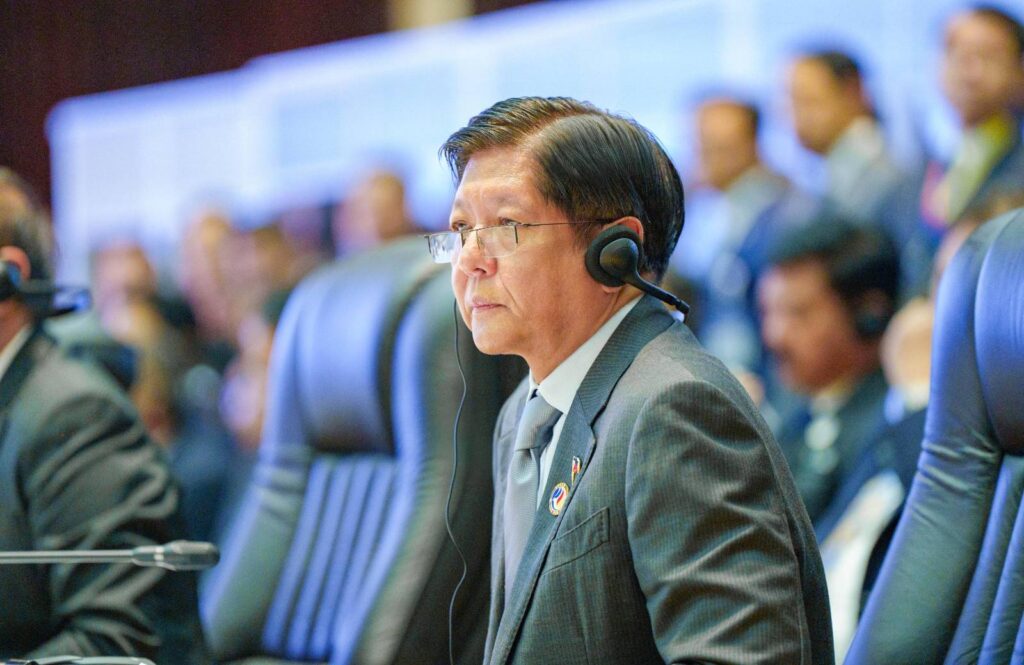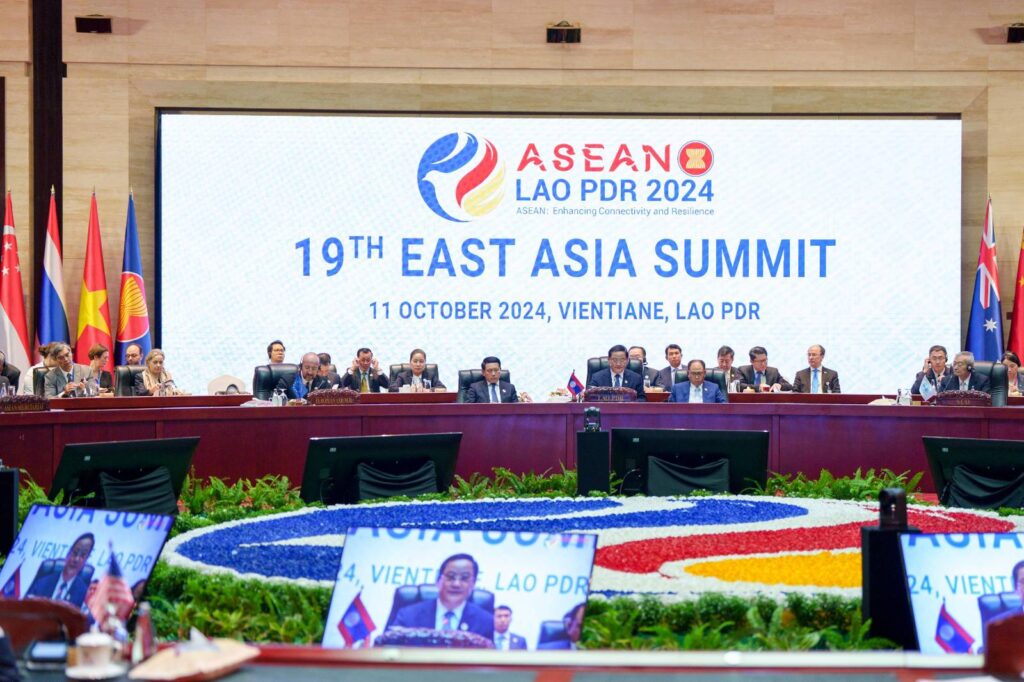Vientiane, Laos — At the recent ASEAN Summit, President Ferdinand “Bongbong” Marcos Jr. took a firm stance against Chinese Premier Li Qiang, addressing the escalating tensions in the West Philippine Sea. The summit, held in Vientiane, brought together leaders from the 10-member Association of Southeast Asian Nations (ASEAN) to discuss pressing regional issues, including the ongoing maritime disputes.
Clashes at Sea
In recent months, there have been numerous violent encounters between Chinese and Philippine vessels in disputed areas of the West Philippine Sea. These incidents have included aggressive actions such as ramming, water-cannoning, and blocking by Chinese coast guard and naval vessels against Philippine government ships. The situation has sparked fears that these confrontations could spiral into a larger conflict.
Marcos’ Firm Message

During the summit, President Marcos emphasized the inseparability of economic cooperation from political security. He argued that ASEAN and China cannot ignore political tensions while pursuing economic partnerships. “You cannot separate economic cooperation from political security,” Marcos stated, urging for expedited negotiations on a code of conduct to manage maritime disputes effectively.
Marcos highlighted the need for urgency in finalizing a binding Code of Conduct (COC) for the South China Sea, which has been under negotiation since 2002. He stressed that unresolved issues such as geographic scope and legal nature remain critical to achieving substantive progress[2].
Regional and International Reactions

The summit also saw reactions from other ASEAN leaders, with Singapore’s Prime Minister Lawrence Wong warning of the real risks of an accident escalating into conflict in the South China Sea. The strategic waterway is crucial for global trade, with trillions of dollars worth of goods passing through annually[3].
The United States has also expressed concern over China’s actions in the region. Daniel Kritenbrink, a top U.S. diplomat for East Asia, accused China of taking “escalatory and irresponsible steps” designed to coerce other nations in the South China Sea.
Moving Forward
The ASEAN Summit underscored the urgent need for diplomatic efforts to de-escalate tensions in the West Philippine Sea. As President Marcos continues to advocate for a peaceful resolution through dialogue and adherence to international law, the international community watches closely, hoping for progress toward stability in this volatile region.
Photo: President Bongbong Marcos Jr. Facebook page
